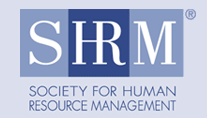Contemporary Best Practices in Employment Testing: Are Your Tests Defensible?
Workplace Application: Validation research is critical to understanding the legal defensibility of selection procedures.
A controversial issue in employment law is the use of tests and other selection procedures to make hiring, promotion and other organizational decisions. Tests that are professionally developed and supported by research, and that can have a substantial impact on organizational performance, are usually legally defensible. Tests that are not professionally developed or supported by research, and that have an adverse impact on members of a protected group, can be mechanisms for systemic discrimination. In this presentation, industrial-organizational psychologists review:
- Contemporary best practices for selecting, using and validating various selection procedures, including employment tests.
- The current state of the Uniform Guidelines on Employee Selection Procedures (1978).
- How to set cut scores.
- Standards for considering reasonable alternatives.
- Common enforcement agency criticisms of validation research.
Eric Dunleavy, Ph.D.

Eric M. Dunleavy, Ph.D., is a Principal Consultant at DCI Consulting Group, where he is involved in equal employment opportunity audit and litigation consulting. He also serves on staff with the Center for Corporate Equality (CCE), which is a national nonprofit employer and research association based in Washington, DC, whose mission is to promote proactive affirmative action, equal employment regulatory compliance, and other human resource management strategies to create diverse organizations free from workplace bias. Eric's primary areas of expertise are in employee selection, employment testing, validation research, adverse impact analyses and other quantitative methods. His most recent work has focused on advanced quantitative analyses for assessing adverse impact and on selection procedure validation research in the context of OFCCP enforcement.
Eric received his M.A. (2002) and Ph.D. (2004) in Industrial/Organizational Psychology with a concentration in data analysis from the University of Houston. He received an Honors B.A. (2000) in Psychology from St. Anselm College.
Find Sessions by Day
Find Sessions by Speaker
Find Sessions by Topic
- Select Track
- General Sessions
Find Sessions by Credit Type
- Select Credit Type
 Business Credit
Business Credit HR Credit
HR Credit Not Available for Credit
Not Available for Credit This has been submitted and is pending approval from HRCI
This has been submitted and is pending approval from HRCI
Find Sessions by Competency
- Select Competency
- Business Acumen
- Communication
- Consultation
- Critical Evaluation
- Ethical Practice
- Global & Cultural Effectiveness
- Relationship Management
Find Sessions by Intended Audience
- Select Intended Audience
- All Levels
- Executive-level
- Mid-Level
- Senior-Level


